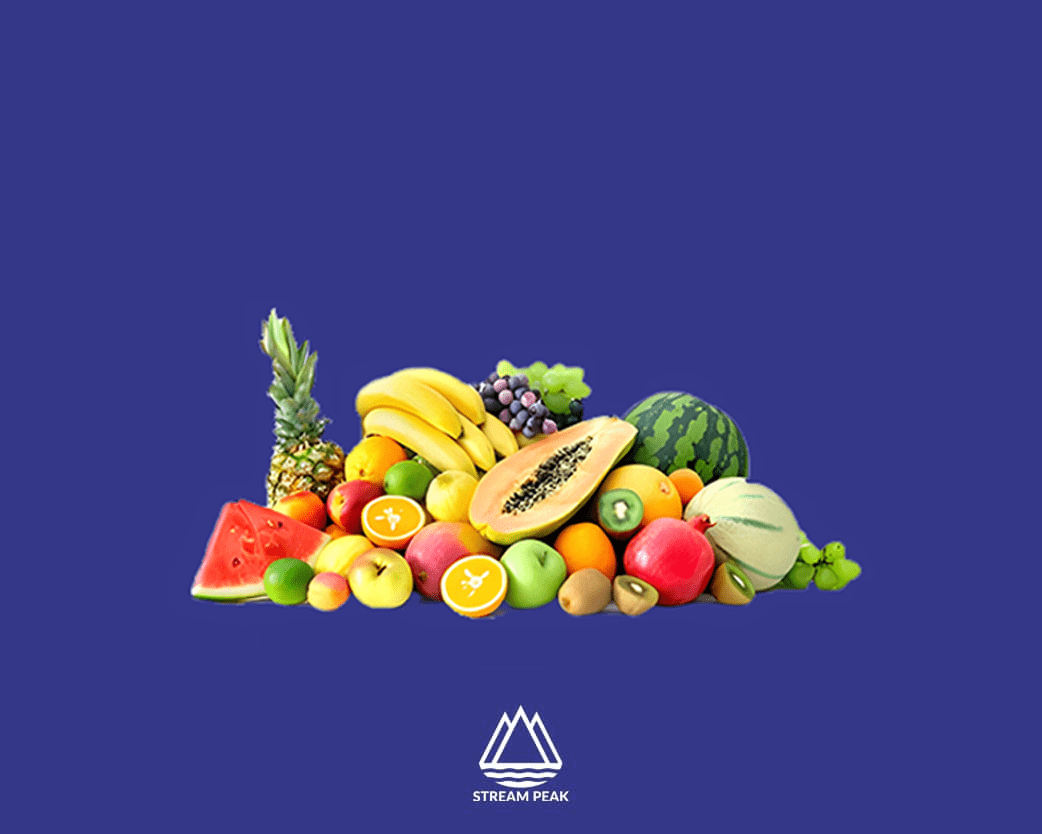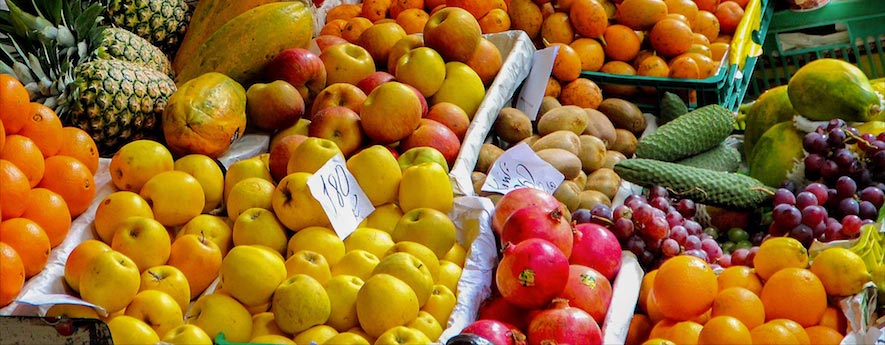How To Keep Fruits Fresh

Fresh fruits are vital to a healthy diet, providing essential vitamins, minerals, and antioxidants. However, the journey from the orchard to the consumer’s table has challenges that affect the quality and freshness of these perishables. Packaging solutions play a pivotal role in preserving the natural goodness of fruits, preventing spoilage, and extending shelf life.
Preserving fruit freshness poses unique challenges due to respiration rates, ethylene production, and moisture content. Fruits are living organisms that continue to respire after harvesting, consuming oxygen and releasing carbon dioxide and ethylene gas. Ethylene, a natural plant hormone, triggers ripening and can accelerate spoilage in sensitive fruits. In this article, we will share packaging solutions designed to keep fruits fresh.
Factors Affecting Fruit Freshness
As the demand for fresh, high-quality produce continues to rise, understanding and managing these key factors will remain pivotal in innovative packaging solutions that prolong the freshness and delight of fruits on the journey from orchard to table. A complex interplay of various factors influences the freshness and quality of fruits. Two critical factors that significantly impact fruit freshness are respiration rates, ethylene production, moisture content, and humidity control.
Respiration Rates and Ethylene Production
Fruits are living organisms, even after they are harvested. They continue to respire, a metabolic process involving the exchange of gases, primarily oxygen and carbon dioxide. Respiration rates vary among fruits and are crucial to their post-harvest shelf life. Fruits with higher respiration rates tend to have shorter shelf lives as they consume oxygen and release carbon dioxide and heat, leading to accelerated deterioration.
Furthermore, ethylene production is another vital aspect affecting fruit freshness. Ethylene is a natural plant hormone that triggers the ripening process in fruits. While ethylene is essential for the natural development of colour, flavour, and aroma, its accumulation in an enclosed environment can lead to overripening, softening, and decay. This is particularly problematic for ethylene-sensitive fruits, as even trace amounts of ethylene can accelerate their deterioration.
Moisture Content and Humidity Control
The moisture content of fruits significantly impacts their appearance, texture, and susceptibility to microbial growth. Insufficient moisture can result in shrivelled, unappetizing fruits, while excessive moisture can lead to mould growth and spoilage. Maintaining the right balance of moisture is crucial for extending the shelf life of fruits.
Humidity control within the packaging environment is a key strategy for managing moisture content. High humidity levels can encourage the growth of microorganisms and mould, while low humidity can lead to desiccation and loss of quality. Packaging solutions incorporating moisture-absorbing materials or humidity-regulating technologies help maintain the optimal humidity range for each fruit type, ensuring their freshness and appearance are preserved.
Importance of Temperature Control
Fruits continue to respire after harvesting, consuming oxygen and releasing carbon dioxide, heat, and ethylene gas. Controlling the temperature at which these metabolic processes occur is essential for slowing down the natural ripening and decay of fruits.
By storing fruits at specific low temperatures, cold chain management effectively inhibits enzymatic reactions, microbial growth, and the production of ethylene gas. This, in turn, extends the shelf life of fruits and maintains their appearance, texture, flavour, and nutritional value. Each fruit variety has an optimal storage temperature that balances the need to slow down respiration without causing chilling injury. In this condition, low temperatures cause damage to the fruit’s cellular structure.
Packaging Solutions
In food packaging, innovative solutions tackle the challenges associated with preserving the freshness and quality of fruits. Three packaging strategies are Modified Atmosphere Packaging (MAP), Active Packaging with Ethylene Absorbers, and Nanotechnology-Infused Packaging.
Modified Atmosphere Packaging (MAP)
Modified atmosphere packaging is a technique that involves altering the composition of gases within the packaging environment to create an atmosphere conducive to extending the shelf life of fruits. By adjusting the levels of oxygen, carbon dioxide, and nitrogen, MAP can effectively slow down the respiration rates of fruits, thereby retarding the natural ripening process. This controlled atmosphere reduces spoilage and maintains the fruits’ visual appeal, texture, and flavour.
MAP is particularly beneficial for fruits with higher respiration rates, as it helps balance the oxygen consumed during respiration and the carbon dioxide and heat generated. This approach extends freshness and reduces the need for chemical preservatives, aligning with consumer preferences for more natural food preservation methods.
Active Packaging with Ethylene Absorbers
Ethylene absorbers are compounds that efficiently capture ethylene gas, a plant hormone that accelerates ripening. By removing ethylene from the packaging environment, these absorbers effectively delay the onset of ripening, helping fruits retain their optimal flavour, texture, and appearance for longer periods.
Ethylene absorbers are particularly advantageous for ethylene-sensitive fruits like bananas, avocados, and berries. By mitigating the impact of ethylene, these absorbers contribute to extending the shelf life of these fruits and reducing the risk of overripening, spoilage, and wastage. This technology has revolutionized fruit preservation, offering a targeted solution to a specific challenge in post-harvest handling.
In a controlled environment like cold storage, the presence of ethylene can lead to unwanted acceleration of ripening and spoilage, especially in ethylene-sensitive fruits. Therefore, maintaining the integrity of the cold chain includes mitigating the effects of ethylene exposure. Cold chain managers use a combination of strategies to prevent ethylene exposure. Additionally, separate storage of ethylene-producing fruits from ethylene-sensitive ones can help minimize the impact of ethylene on freshness.
Nanotechnology-Infused Packaging
Nanotechnology-infused packaging materials create barriers that enhance protection against moisture, oxygen, and pathogens. These barriers are particularly crucial for maintaining the freshness of fruits by minimizing moisture loss, preventing oxidation, and reducing the entry of harmful gases.
By incorporating nanomaterials into packaging, the industry has achieved remarkable advancements in extending fruit shelf life. These materials provide an added layer of defence against external factors contributing to spoilage. Nanotechnology in packaging is a testament to the relentless pursuit of innovative solutions to ensure the delivery of fresh, high-quality fruits to consumers.
Smart Packaging Technologies
Smart packaging technologies preserve, monitor, and interact with food, particularly when maintaining the freshness of fruits. They provide actionable data and enhance transparency and accountability within the supply chain. By sharing real-time information with suppliers, distributors, and retailers, these technologies foster a collaborative approach to preserving fruit quality.
Stakeholders can proactively address issues like temperature deviations or ethylene exposure before compromising freshness. Furthermore, consumers benefit from this transparency as they gain insight into their food journey from farm to table. By scanning QR codes or utilizing smartphone apps, consumers can access information about the origin, handling practices, and storage conditions of the fruits they purchase.
Monitoring Temperature and Humidity
Temperature and humidity play a pivotal role in fruit preservation. Fluctuations in temperature can accelerate or decelerate enzymatic and microbial activities, while humidity levels impact moisture content, texture, and microbial growth.
The best packaging practice incorporates data loggers that continually monitor and transmits real-time data on these factors, providing an instant snapshot of the fruit’s environment. These data loggers can be embedded within the packaging or attached to the product. The data collected helps ensure that fruits are stored and transported within the optimal temperature and humidity range, minimizing the risk of premature ripening, decay, or loss of quality.
Ethylene Gas Sensors and Indicators
Integrating ethylene sensors and indicators into smart packaging addresses the challenge of ethylene exposure. These sensors can detect minute increases in ethylene concentration within the packaging environment, alerting stakeholders to the presence of the gas even before visual signs of ripening occur.
On the other hand, ethylene indicators provide a visual cue of ethylene exposure. These indicators change colour as ethylene levels increase, offering a simple yet effective means of gauging the condition of fruits within the packaging. By having real-time insights into ethylene gas levels, supply chain managers can take timely actions to counteract the effects of ethylene and maintain fruit freshness.
Conclusion
Packaging solutions have actively preserved fruit freshness, mitigating respiration, ethylene, and spoilage challenges. Ethylene absorbers are a powerful tool in this pursuit, working with other packaging innovations and technologies. Stream Peak offers extensive food packaging solutions tailored to preserve Fruit Freshness. We welcome you to contact us to schedule a no-obligation appointment with our packaging engineers.


